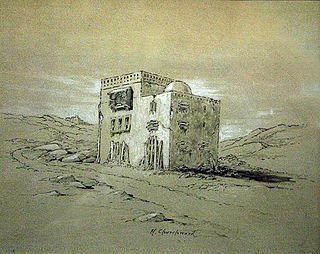
Gilles Vigneault is a Québécois poet, publisher, singer-songwriter, and Quebec nationalist and sovereigntist. Two of his songs are considered by many to be Quebec's unofficial anthems: "Mon pays" and "Gens du pays", and his line Mon pays ce n'est pas un pays, c'est l'hiver became a proverb in Quebec. Vigneault is a Grand Officer of the National Order of Quebec, Knight of the Legion of Honour, and Officer of the Ordre des Arts et des Lettres.

"Warszawianka 1831 roku", "La Varsovienne" is a Polish patriotic song written by Casimir François Delavigne with music by Karol Kurpiński.
Beau Dommage was a rock band from Montreal, Quebec, who achieved success in Quebec and France in the 1970s. The group's style included rich vocal harmonies and elements borrowed from folk and country music.

Les nuits d'été, Op. 7, is a song cycle by the French composer Hector Berlioz. It is a setting of six poems by Théophile Gautier. The cycle, completed in 1841, was originally for soloist and piano accompaniment. Berlioz orchestrated one of the songs in 1843, and did the same for the other five in 1856. The cycle was neglected for many years, but during the 20th century it became, and has remained, one of the composer's most popular works. The full orchestral version is more frequently performed in concert and on record than the piano original. The theme of the work is the progress of love, from youthful innocence to loss and finally renewal.

Louis Gaston Adrien de Ségur was a French bishop and charitable pioneer.

François Valéry is a French singer-songwriter and composer.
Hollywood Girls : Une nouvelle vie en Californie, or simply Hollywood Girls, is a French soap opera shown on NRJ12.
Lucky Blondo is a French singer who was popular in the 1960s.

Jonathan Painchaud is a Canadian singer-songwriter from Iles de la Madeleine, Quebec.

Lys Gauty was a French cabaret singer and actress. Her most significant work came in the 1930s and 1940s as Gauty appeared in film, and recorded her best-known song, "Le Chaland Qui Passe", which is an interpretation of an Italian composition.

Les Djinns is one of the most famous poems of French author Victor Hugo, published in 1829 in his collection Les Orientales.

The Ramesses III prisoner tiles are a collection of Egyptian faience depicting prisoners of war, found in Ramesses III's palaces at Medinet Habu and Tell el-Yahudiyeh. Large numbers of faience tiles have been found in these areas by sebakh-diggers since 1903; the best known are those depicting foreign people or prisoners. Many were found in excavated rubbish heaps.
Nicole de Buron was a French writer.

The Yehawmilk stele, de Clercq stele, or Byblos stele, also known as KAI 10 and CIS I 1, is a Phoenician inscription from c.450 BC found in Byblos at the end of Ernest Renan's Mission de Phénicie. Yehawmilk, king of Byblos, dedicated the stele to the city’s protective goddess Ba'alat Gebal.
Théâtre à la table is an online initiative where actors of the Comédie-Française troupe play works in the repertoire after a one week rehearsal. Each week, the rehearsed play is performed by actors of the troupe using their text.

The conspiracy theory of the French Revolution creeps in as the cause of what is happening in France during the events themselves.











